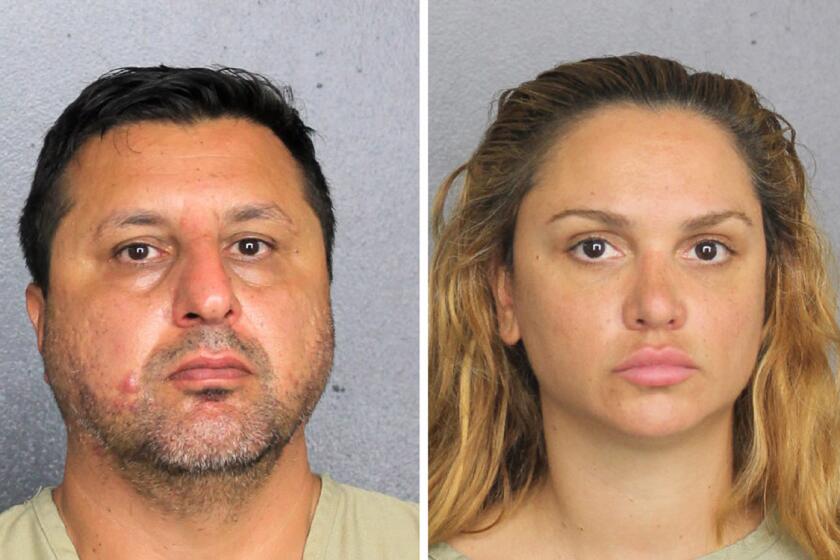Former Hollywood film executive will plead guilty to pocketing fraudulent COVID-19 loans

- Share via
A Beverly Hills resident and former chief executive of Aviron Pictures has agreed to plead guilty to federal fraud and money laundering charges after he pocketed nearly $1 million in Paycheck Protection Program loans meant to help businesses pay workers during the COVID-19 pandemic, prosecutors said.
William Sadleir, 67, agreed to plead guilty to one count each of bank fraud and money laundering and is scheduled to formally enter the pleas next week, according to an announcement Thursday by the U.S. attorney’s office for the Central District of California.
He has already pleaded guilty in a separate federal fraud case in New York for misappropriating more than $25 million that was invested in Aviron, prosecutors said.
In the California case, Sadleir filed applications that fraudulently sought more than $1.7 million in PPP loans for three Aviron companies that had already shut down, prosecutors said. Such loans were guaranteed by the U.S. Small Business Administration and designed to be forgiven for companies that spent most of the money on payroll costs and avoided cutting jobs.
“According to court documents, Sadleir obtained the loans for three Aviron entities by falsely representing that the funds would be used to support payroll expenses for 33 employees at each company, when in fact the entities were no longer operational,” prosecutors said.
Federal authorities arrested a Beverly Hills film producer on fraud charges after he allegedly paid off his personal credit cards with federal loans intended to help small businesses weather the coronavirus pandemic.
The loans were funded May 1, 2020, and within days, Sadleir transferred nearly $1 million to his personal checking account, prosecutors said.
He spent “a substantial amount” of the loans on utility bills, mortgage expenses and his personal attorney, among other things, according to his plea agreement.
Sadleir did not use any of the loans to pay employees, prosecutors said.
“Following the discovery of the fraudulent loan applications, federal agents seized $308,058 of fraudulent loan proceeds from an Aviron account, and Sadleir returned $1,122,090 to the bank that funded the loans,” prosecutors said.
The Small Business Administration suffered losses of $282,566, and Sadleir agreed to pay full restitution as part of his plea agreement, prosecutors said.
A source confirmed that fugitives Richard Ayvazyan; his wife, Marietta Terabelian; and sister-in-law Tamara Dadyan were arrested in Montenegro.
He faces a statutory maximum sentence of 50 years in federal prison, prosecutors said, adding that they’ve agreed to recommend that his sentence should run concurrently with a sentence to be imposed in his pending case in U.S. District Court for the Southern District of New York.
Sadleir is scheduled to be sentenced May 10 in the New York case for misappropriating investments in Aviron, prosecutors said.
In that case, Sadleir pleaded guilty in January to two counts of wire fraud connected to his participation in two schemes related to investments made by a New York-based fund to Aviron Pictures LLC and its entities, according to the U.S. attorney’s office for the Southern District of New York.
“William Sadleir used his talent for selling stories to con a New York investment fund out of over $30 million using a fake company, fake documents, and even a fake identity,” said U.S. Atty. Damian Williams. “In a brazen plot that could be ripped from one of the films he distributed, Sadleir even made up a character that he named ‘Amanda Stevens,’ and masqueraded as her in an effort to get away with his fraud. We called a wrap on Sadleir’s scheming, and he now faces significant time in federal prison.”
Sadleir’s attorney in the California case, Adam Olin, declined to comment for this story.
More to Read
Sign up for Essential California
The most important California stories and recommendations in your inbox every morning.
You may occasionally receive promotional content from the Los Angeles Times.












